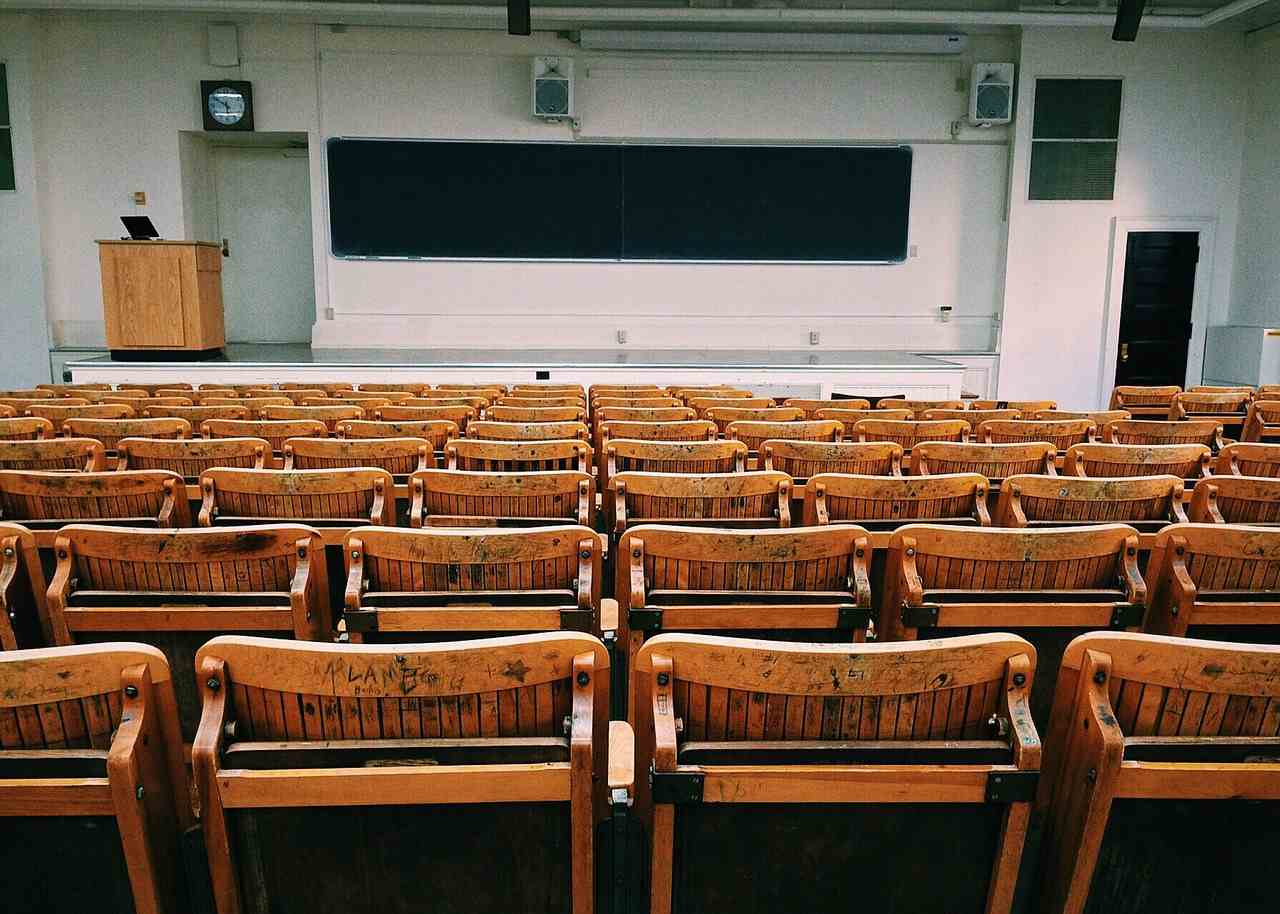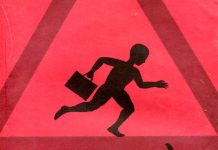This article is not about the utility of ‘online teaching’ at a time when the pandemic has caused what is popularly known as ‘social distancing’; nor is it about its limitations because of the prevalent socio-economic inequality and associated digital divide in our society. Instead, in this article I intend to interrogate myself—the meaning of being a teacher, or the way as educationists we perceive education. And I feel that at this crucial juncture of our civilizational history when the coronavirus has shattered our ‘taken-for-granted’ world, caused psychic anxiety and existential uncertainty, and revealed rather sharply the cleavages within our society, we need to redefine our roles, and rethink education or our engagement with students. The issue is not about internet connectivity, the pros and cons of Zoom or some other apps; nor is it about merely completing the syllabus, conducting exams and ‘saving’ time. It is not merely about being techno-savvy: shifting smartly from direct face-to-face teaching in a physically embedded classroom to a computer screen and delivering the same monologue. It is sad that as teachers, educationists and policy makers, we are primarily concerned with the techniques of dissemination of what formal academic institutions regard as ‘knowledge’. Seldom do we ask a difficult question: Can we go on teaching the same syllabus in the same fashion at a time when the world no longer remains the same?
In this article I wish to reflect on this question.
The Poverty of Imagination
Possibly, there are three reasons for our failure to think of education qualitatively differently. First, I tend to feel that our minds are terribly conditioned; our ‘schooled’ consciousness refuses to see beyond graded learning, ‘sacrosanct’/official curriculum, ‘legitimate’ texts, and weekly/monthly/yearly examinations. To be ‘educated’ means to be certified by this formal structure; and hence, all the rituals—completing the syllabus, mastering the texts, writing the assignments, and following the timetable—have to be performed with robotic efficiency. As a result, it is difficult for us to believe that meaningful learning can take place even outside formal institutions; and one can learn through the complex trajectory of life one passes through, be it an accident, a socio-political crisis or even a death in the family. No wonder, even at this moment when the pandemic has affected all of us in multiple ways, and we are trying to make sense of it through continual learning and unlearning, schools/colleges/universities fail to come forward with a refreshingly new approach to education. Instead, the anxiety is that how teachers would complete the syllabus, students would submit their assignments, exams would be conducted and degrees would be awarded in due time. Yes, people are dying; psychic fear is all-pervading; and everything is upside down. Yet, we are asked by school Principals, Vice-Chancellors and other bosses that even at this moment of turmoil, we have to appear on the screen, and teach our students, say, the Chapter 6 in history textbook—the reasons for the downfall of the Mughal Empire; or a sociology professor have to dictate notes on the four types of suicide Emile Durkheim talked about. And we would not think twice before we give them the age-old assignments—say, calculating the area of a trapezium, drawing the map of New Zealand, or summarizing a heavily mystified writing of Pierre Bourdieu. Famine or flood, earthquake or coronavirus: nothing should be allowed to disturb us; we must go on, memorize the texts, write the exams, digest the professor’s notes, and ‘utilize’ time ‘productively’ and ‘efficiently’. Everything is okay so long as Zoom is there, and students are connected. This is our attitude. And it is frightening.
Second, we have been asked to withdraw the ‘Self’ from the entire process of acquiring schooled knowledge. Yes, there are knowledge capsules—say, a chapter on ‘profit and loss’ in a school mathematics text; three poems of William Wordsworth in BA pass course, or three chapters from The Social System by Talcott Parsons in sociology honors course. And students can consume these capsules without inner churning, without looking at their own biographies, and without contextualizing the knowledge in the real/living world they touch, feel and experience. Hence, we would not address to the existential issues that all of us are coping with at this moment of psychic turmoil; and we would be asked to pretend that everything is ‘normal’, and if there is no problem with the internet connection, the business can go on as usual. A college girl is possibly seeing her anxiety-ridden father who might lose his job because of the economic crisis the pandemic has led to; but then, she is required to write a perfectly hygienic paper on ‘structural functionalism’ –an assignment given by her detached/’professional’ professor. Or, a school boy—confined to a 700 sq.ft apartment with four other members in the family—has to borrow the only smartphone available in the family from his father, and upload an assignment on ‘fundamental rights and directive principles’. This is absurd. Knowledge is out there—distant, abstract, impersonal; knowledge exists in printed words; it is devoid of the fragrance of life—its pain and pleasure, or dream and suffering. Truly, we are bound to be alienated—mere ‘role-performers’.
Third, it is tragic that as teachers we have already been reduced into cogs in a learning machine. We must obey what academic bureaucrats dictate without making any effort to assert our creative agency; or, for that matter, we have begun to see ourselves as just paid employees, or ‘service providers’. Hence, we must ‘deliver’! We are on the screen. We are delivering lectures, dictating notes, giving assignments, reporting to the higher authorities, assuring them that we have ‘covered’ Marx and Althusser, thermodynamics and magnetic theory, or Kamala Das and Munshi Premchand, and graded, ranked and hierarchized our students. We are not expected to do anything else. We are merely the mediators between the official curriculum and students. We are not supposed to rethink education. We are not expected to establish a deep spirit of communion with the tormented souls of our students. It is sad that these days we have learned to believe that teaching is just a technique, an official duty; it is not poetry of life; it is not a walk with students as co-travellers. Hence, why should we bother whether our students are emotionally disturbed, or whether their loved ones have been sent to hospitals, or whether their parents are frustrated and anxiety-ridden? Our only task is to mythologize the miracle of Zoom, and complete the syllabus!
The Art of Possibilities
As a teacher, I cannot escape this self-critique. I am also not sure whether I have any ‘alternative’ to offer. But I know I am tormented; I see the absurdity of the sort of things we are doing in the name of ‘online teaching’. I am guilty. I am confused. I am broken. I acknowledge the crisis. And possibly because of this acknowledgement, I begin to strive for some other possibilities. It is in this context that I wish to share a set of ideas with all those who believe that education is not just what we do at schools/colleges/universities; education is also a therapeutic act with awakened intelligence, ethics of care and deep sensitivity to life.
At this moment we see the death of the modernist notion of ‘certainty’ and technically controlled ‘order’; the virus seems to have demolished the narcissism of modernity that we are the masters of the world. Yes, we live amid absolute uncertainty. We see the breakdown of our ‘future’ plans and programs. And no matter how much we try, death cannot be seen as a statistical abstraction. Death is here—the virus can enter our towns, our villages, our residential complexes. And even if Bollywood stars or celebrities share their glossy stories, it is difficult to pretend, and repeat what we have learned from American self-help books: ‘I am ok, you are ok’. The fact is that psychologically and emotionally we are broken. Likewise, we are also seeing huge walls of separation and exclusion: gated communities closing their gates for the entire brigade of ‘maids’ and ‘servants’; migrant workers are led to realize that they are just objects for use, and in difficult times they are destined to be humiliated; a Muslim with coronavirus ‘positive’ is hated, condemned and stigmatized; and if you fall sick with the symptoms like high fever, there is no neighbor to take you to the doctor.
As students and teachers, we are passing through this intense experience. How do we negate it, and keep ‘studying’ biology and chemistry, or history and political science without redefining it in the context of the new reality? I should not be misunderstood. I am not saying that learning should be stopped. Nor am I saying that ‘online teaching’ is completely useless. I am only suggesting that as teachers we ought to be humane, sensitive and reflexive; we ought to be communicators and friends; we ought to study together as wanderers.
Let me give a couple of concrete illustrations to make my point. Imagine that you are teaching political science (yes, ‘online’), and your class 9 students have to learn the constitutional provisions relating to ‘fundamental rights’. Is it altogether impossible for you to engage in a conversation with them on the plight of migrant workers, domestic help and innumerable people losing their jobs; persuade them to have a discussion with their parents; and then write an experiential story relating to the conflict between the lived reality and the constitutional provisions? Or imagine you are teaching English literature. Is it altogether impossible to refrain from the usual instruction—how to write ‘objective’/’factual’ answers for scoring 99/100 in English? And imagine how life-enriching it would have been had you told them the story of Hemingway’s Old Man and the Sea, and inspired them to see the value of endurance and determination even amid difficulties. Or imagine that you are a sociology professor. Is it altogether impossible for you to urge your undergraduate students to probe into the discourse of ‘social distancing’, and then read Emile Durkheim’s notion of the ‘social’ differently at this moment when isolation is recommended and surveillance is normalized? Or for that matter, can a lecture on Descartes and Derrida wait for a couple of months? Imagine that a philosophy professor is sharing with his perplexed students the tales of Sisyphus as Albert Camus depicted, or the conversations of Nachiketa and Yama in the Katha Upanishad, and urging her students to reflect on the meaning of life and death, particularly when the coronavirus has made us confront this question.
Yes, education can be meaningful. And as teachers, we can become more experimental, imaginative and sensitive. After all, our task is not merely to learn how to use Zoom , and complete the syllabus. Teaching is not a technique; it is essentially a quest, a meditative journey—an art of living and dying.
Avijit Pathak is Professor of Sociology at JNU, New Delhi .










